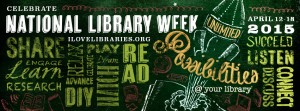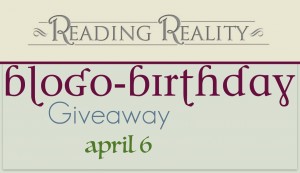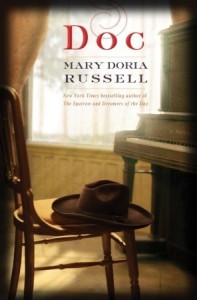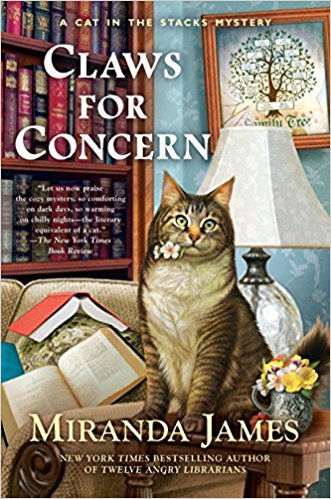 Claws for Concern (Cat in the Stacks, #9) by Miranda James
Claws for Concern (Cat in the Stacks, #9) by Miranda James Format: eARC
Source: supplied by publisher via NetGalley
Formats available: hardcover, ebook, audiobook
Genres: cozy mystery, mystery
Series: Cat in the Stacks #9
Pages: 277
Published by Berkley Books on February 20, 2018
Purchasing Info: Author's Website, Publisher's Website, Amazon, Barnes & Noble, Kobo, Bookshop.org
Goodreads
Charlie Harris and his Maine Coon cat, Diesel, are embroiled in a new mystery when a cold case suddenly heats up in the latest installment of the New York Times bestselling series.
Charlie Harris has been enjoying some peace and quiet with his new grandson when a mysterious man with a connection to an unsolved murder starts visiting the library...
My Review:
April 8-14 is National Library Week. In honor of this week, one that celebrations Libraries and Librarians, I searched the virtually towering TBR pile for a book that related to libraries. Instead of choosing something serious, I went for the lighthearted approach, and snagged Claws for Concern, a cozy mystery by a librarian that features a librarian-cum-amateur sleuth.
While the book managed to be mostly light-hearted, in spite of the surprising number of murders that librarian Charlie Harris seems to trip over in his small Mississippi town, there was also a bit of real librarian seriousness in the background, which makes this the perfect book for this week after all.
 The Cat in the Stacks series, which began with Murder Past Due, features the extremely large Maine Coon cat Diesel and his human, librarian Charlie Harris. Diesel does not solve crimes, and he never does anything that is not within the bounds of normal feline behavior, but he is probably the reason a lot of people read the series. We all want a cat just like him because he’s not merely large and intelligent (on the scale of cat intelligence – not human) but he is also incredibly well-behaved.
The Cat in the Stacks series, which began with Murder Past Due, features the extremely large Maine Coon cat Diesel and his human, librarian Charlie Harris. Diesel does not solve crimes, and he never does anything that is not within the bounds of normal feline behavior, but he is probably the reason a lot of people read the series. We all want a cat just like him because he’s not merely large and intelligent (on the scale of cat intelligence – not human) but he is also incredibly well-behaved.
But of course it’s the human’s point of view that we follow. Librarian Charlie Harris, in spite of his penchant for involving himself in murder investigations, is very much “one of us”. The series is written by a librarian, and Charlie, at least at his actual work, is quite true to life. He does the things that many of us do, puts up with many of the things we have to put up with, and has many of the same gripes and complaints that real-life practicing librarians do, as well as many of the joys and intellectual challenges that make up library-life.
The murder in this particular entry is a cold case. It was refreshing not to have Charlie trip over yet another dead body, as the population of tiny Athena Mississippi and its surrounds would be decimated if he kept up at the rate he was going. But this cold case turns out to be tied to his family, albeit tangentially.
Long before the aunt from whom Charlie inherited his lovely house married the man that Charlie knew as his uncle, said uncle was previously married and divorced. And had a child he never knew about. That child is now in his 60s, seems a bit down on his luck, and is haunting Athena looking for information about the father he never knew.
But the poor man was also the suspect in a long-ago multiple murder, and it seems as if there is someone in town who either wants to settle the old score – or who wants to keep old Bill Delaney from revealing what he knows about that bloody, long ago, night.
Charlie isn’t sure whether his recently discovered cousin is a murderer who got off scot-free, or about to be the victim of a murder in the here and now. But he and his new associate are determined to find out – one way or another.
Escape Rating B: This is a cozy series, so it’s always a light read – no matter how many dead bodies Charlie stumbles over. This particular entry feels unique in that there are no new murders. And that’s probably good for the population of Athena.
Instead, Charlie finds himself investigating a cold case with the help of a new friend who has a history of conducting his own amateur investigations in a nearby town. Jack Pemberton writes true-crime books, investigates cold cases, and wants to feature Charlie and other amateur sleuths in his next book. Together they bring new light to a case that everyone believed was cut and dried if not open and shut.
The process for opening the investigation reads very much like an oral history project, something conducted by many librarians and archivists (Charlie is both) over the years. There is no new forensic evidence – only evidence that may have been overlooked or just needs to be looked at in a new light.
But with a 20-year-old case Charlie and Jack have to find people who were around at the time, and interview them. Not that they don’t think everyone was interviewed at the time, but they need to form their own impressions. And it is always possible that someone remembers something they didn’t back then, or that someone was covering for someone who is now beyond earthly justice.
It is always fun to follow Charlie as he works, whether it’s his work at the library or his work as an amateur detective. Especially when he brings Diesel along with him. Athena is a nice place to visit, Charlie is a terrific person to visit it with, and I always enjoy my time with Diesel. This series is a comfort read for me, and I know I’ll be back for more when the mood arises.
One serious library issue gets raised early in the book, and it’s one that I want to talk about before I close. As a volunteer staff member at the Athena Public Library, Charlie has access to the library circulation system. He can look up people’s library cards, see where they live and what they’ve checked out. In libraries, this is a huge privacy issue, and there have been plenty of court cases about what staff can reveal to anyone other than the cardholder, including law enforcement. But when Charlie discovers that the old man who keeps coming into the library is looking up Charlie’s own address in the old City Directories, Charlie can’t resist the temptation to look up the man’s library card and see who he is and where he lives. Charlie knows he’s not supposed to do this, he has resisted the temptation on previous cases, but can’t resist temptation when he knows that this person is looking for him or his family and casing his house. Charlie feels guilty about it immediately afterwards, and so he should. Protecting patron privacy is one of the cornerstones of library service. He does not let himself off easily for his transgression, nor should he.
In celebration of National Library Week, please visit your local library and/or (preferably AND) tell your local powers that be that you value your library and want to see it continue to be funded and to serve your community.
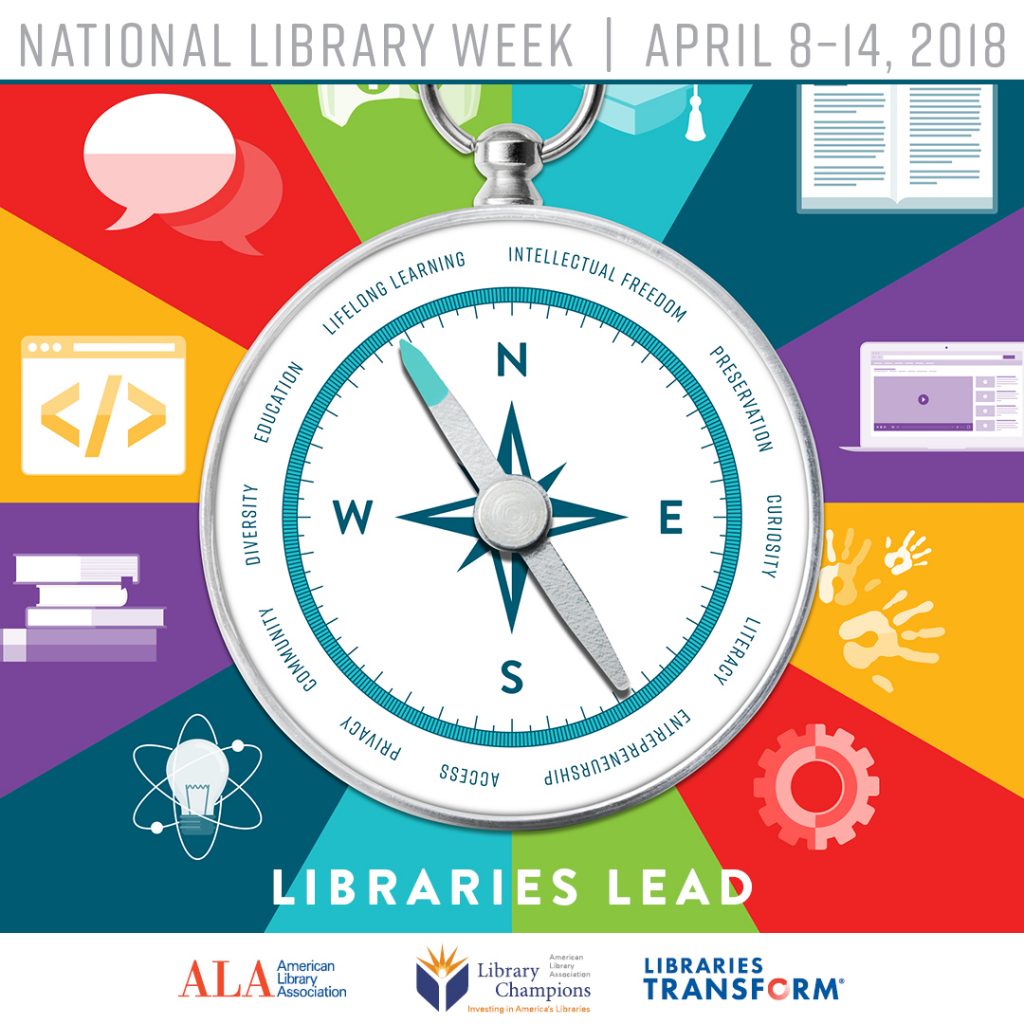

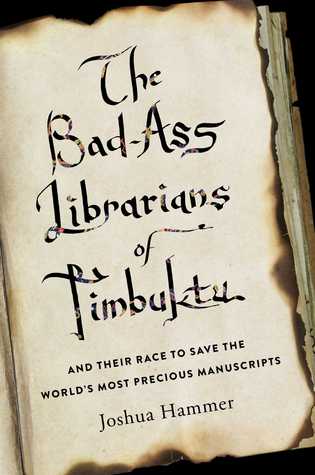 The Bad-Ass Librarians of Timbuktu: And Their Race to Save the World’s Most Precious Manuscripts by
The Bad-Ass Librarians of Timbuktu: And Their Race to Save the World’s Most Precious Manuscripts by 
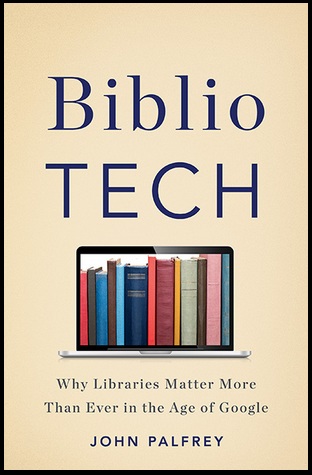 Format read: ebook provided by the publisher via NetGalley
Format read: ebook provided by the publisher via NetGalley